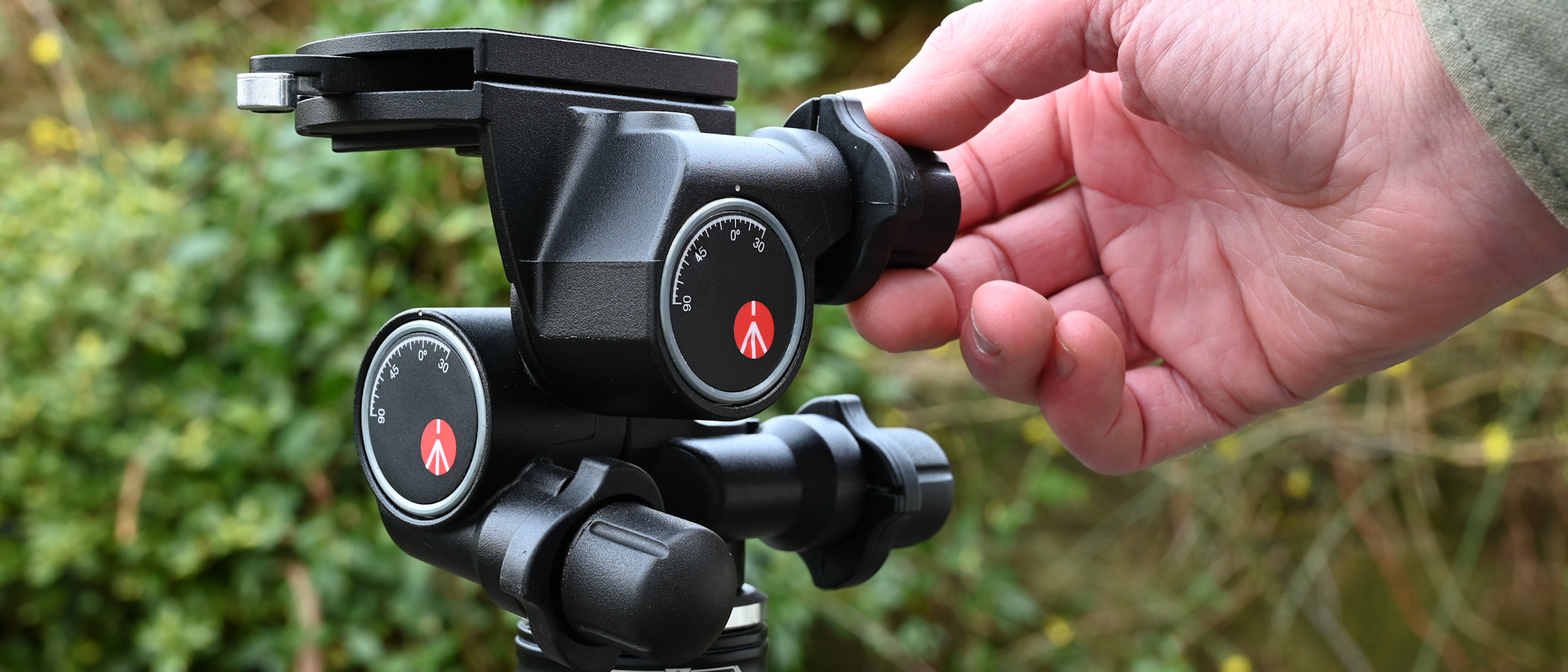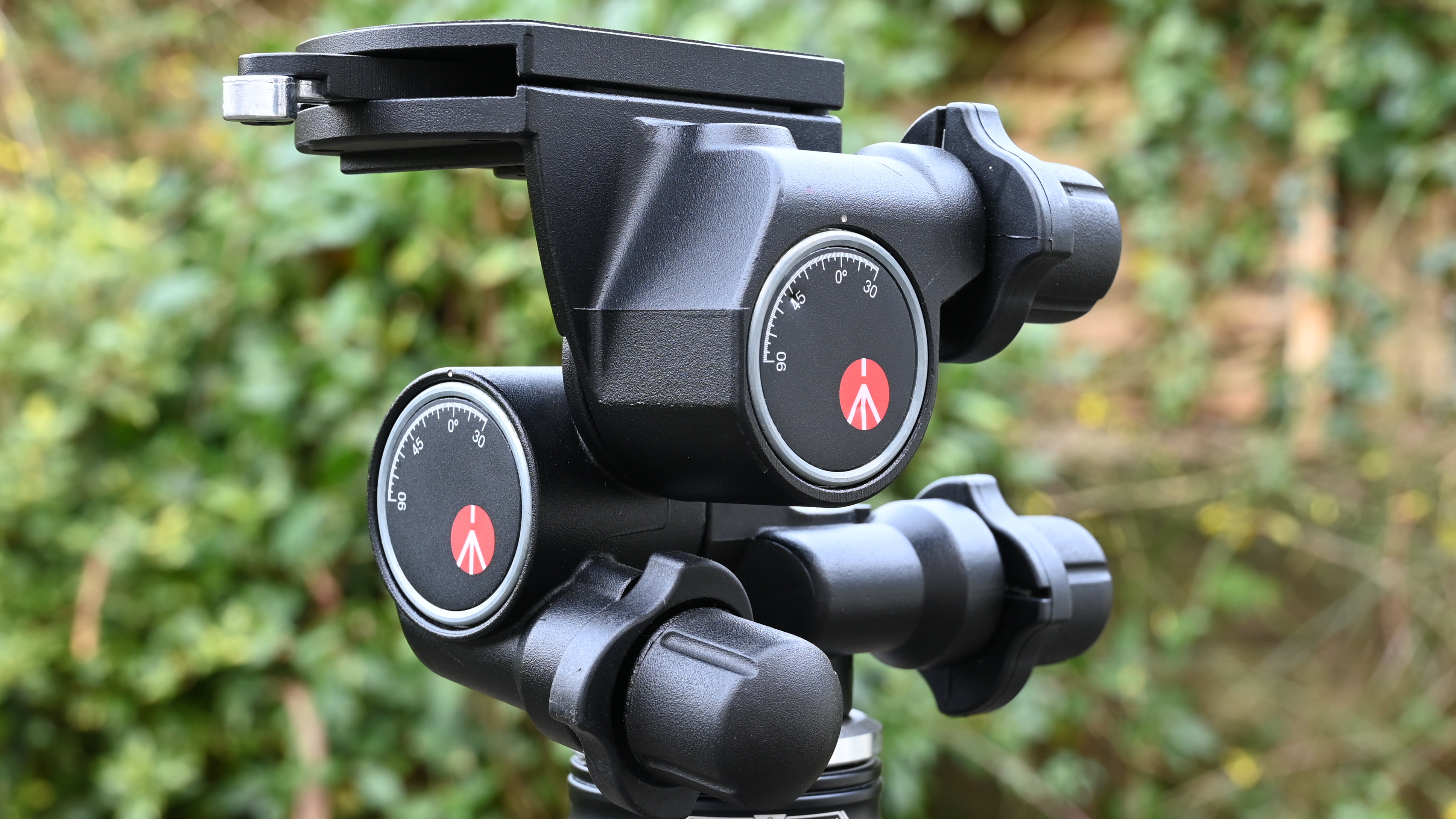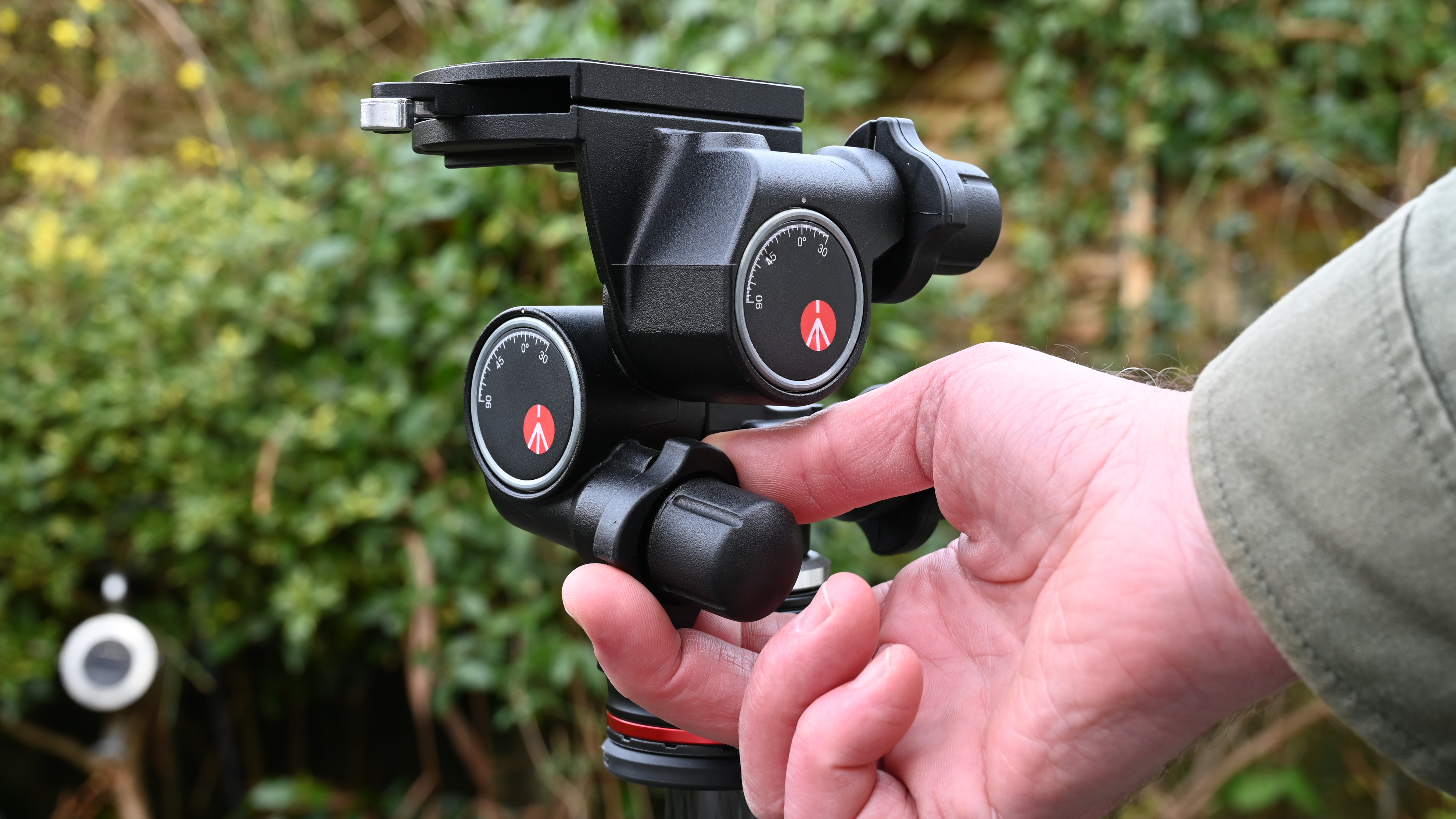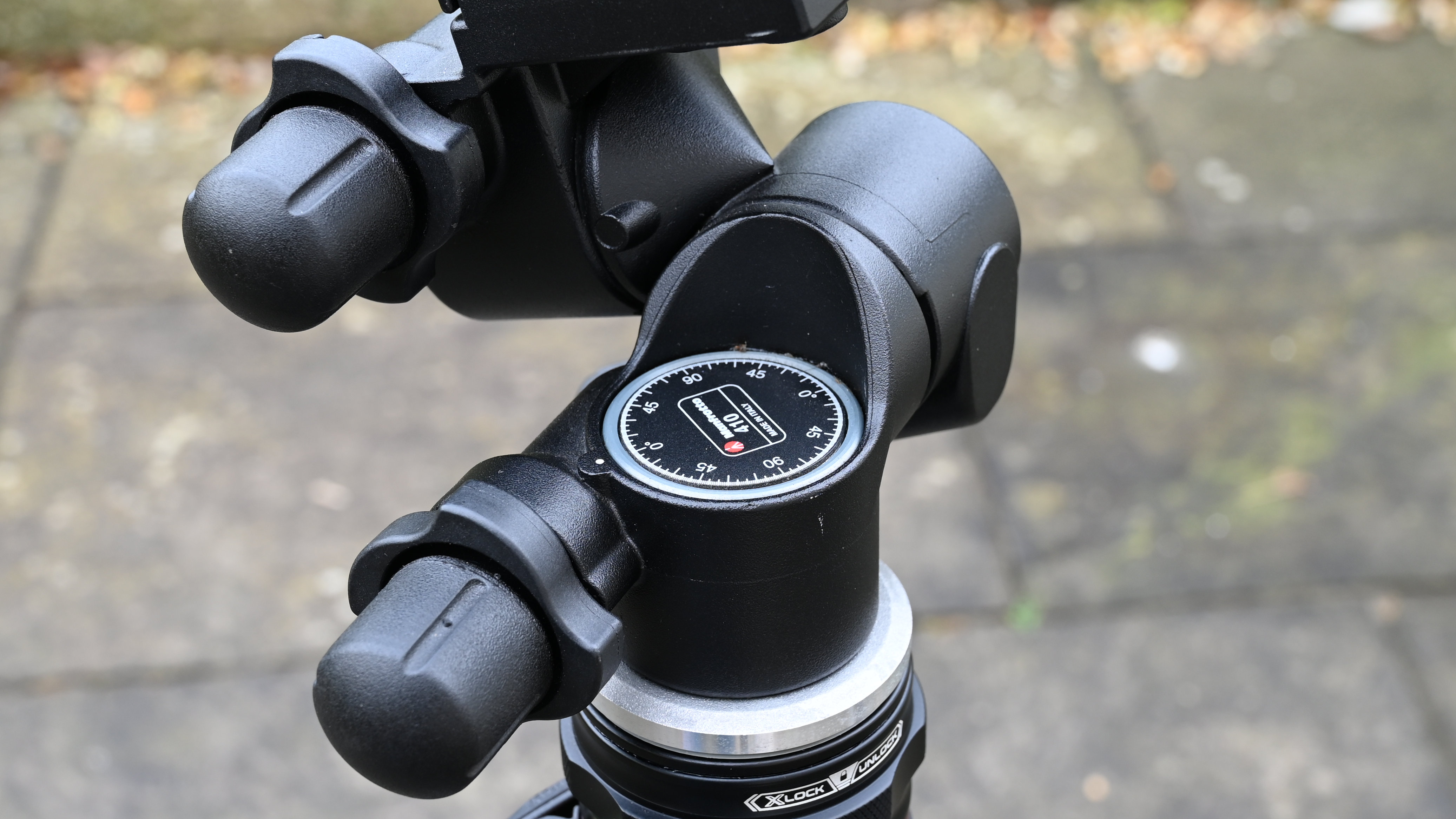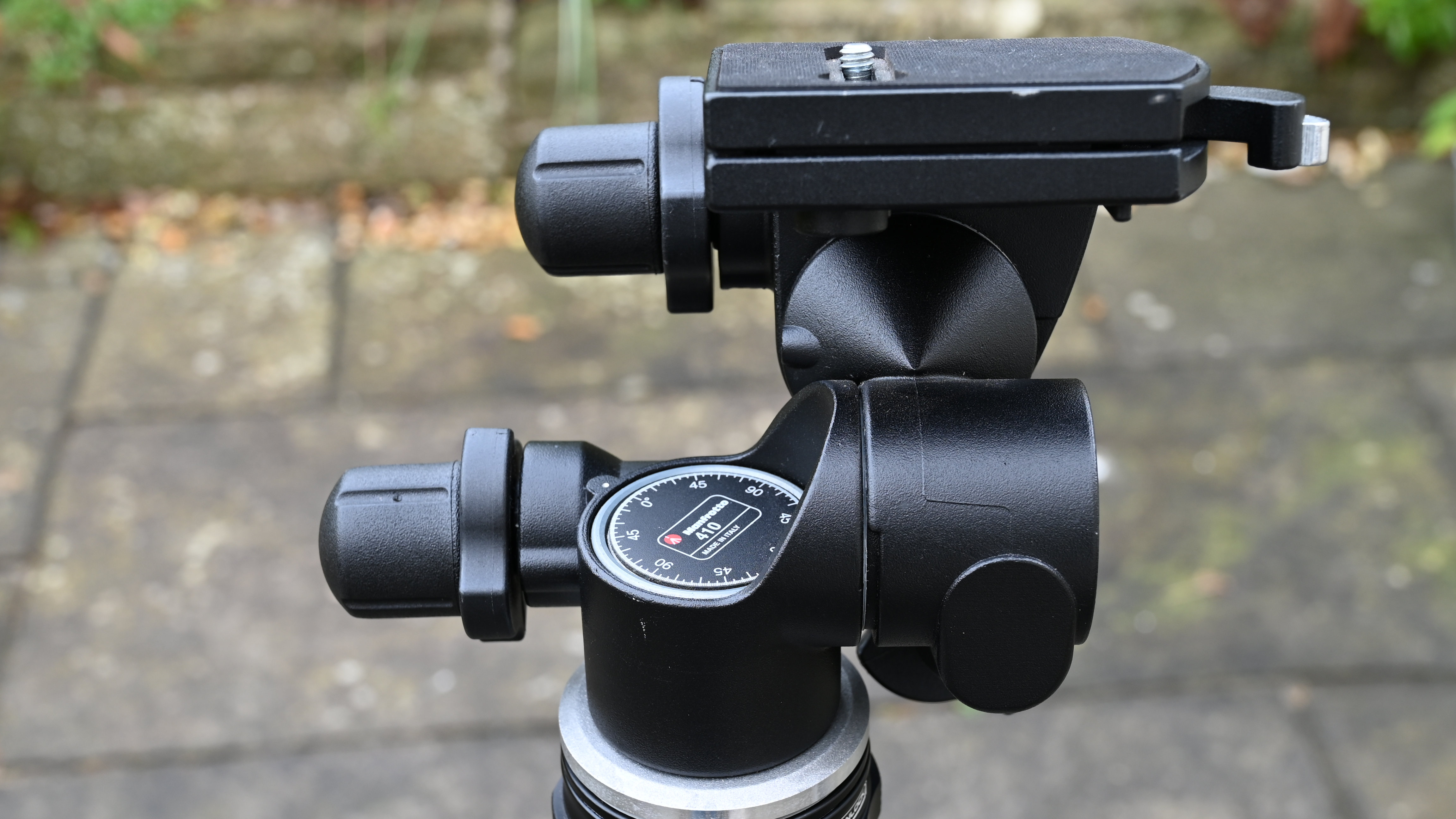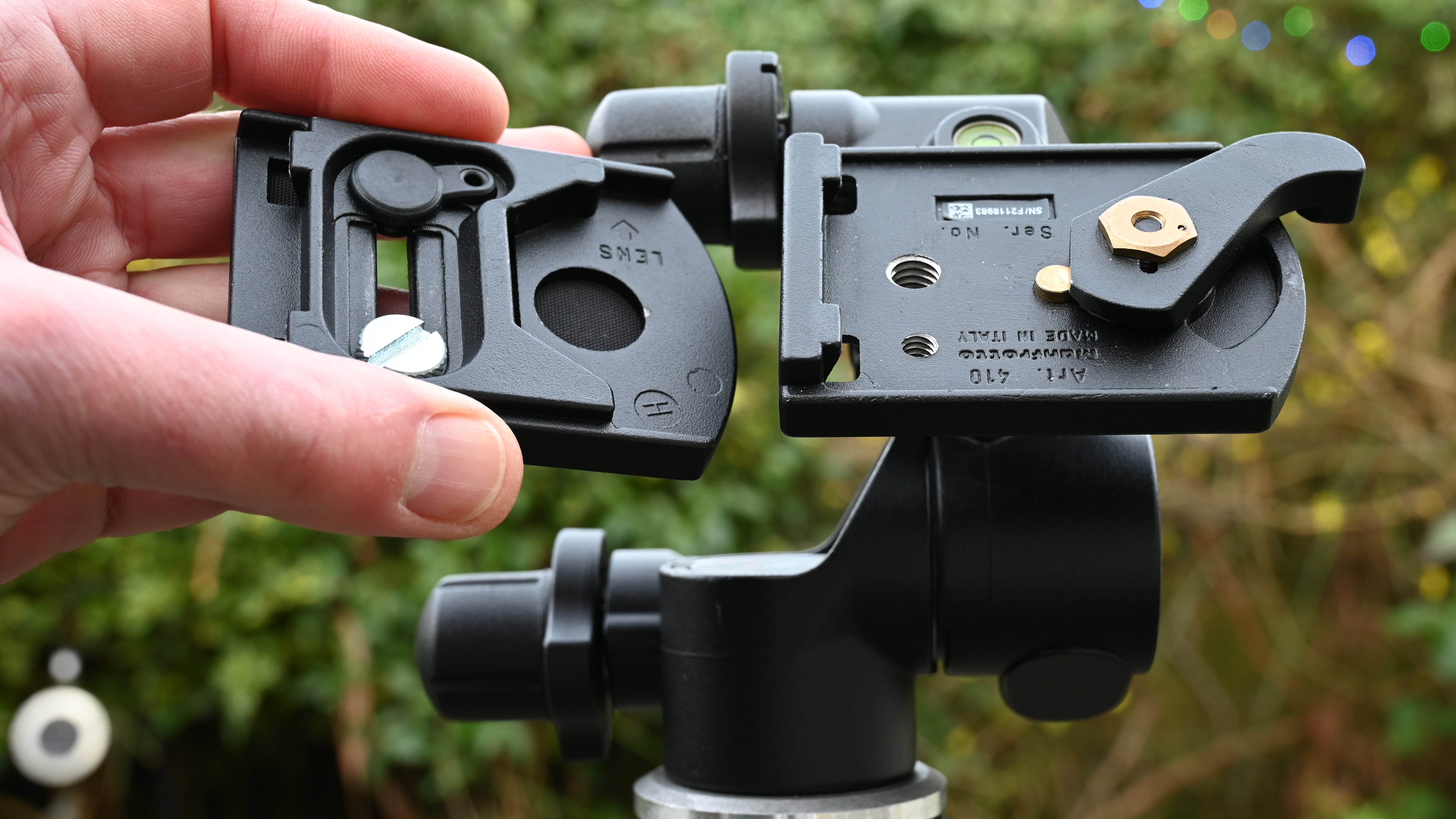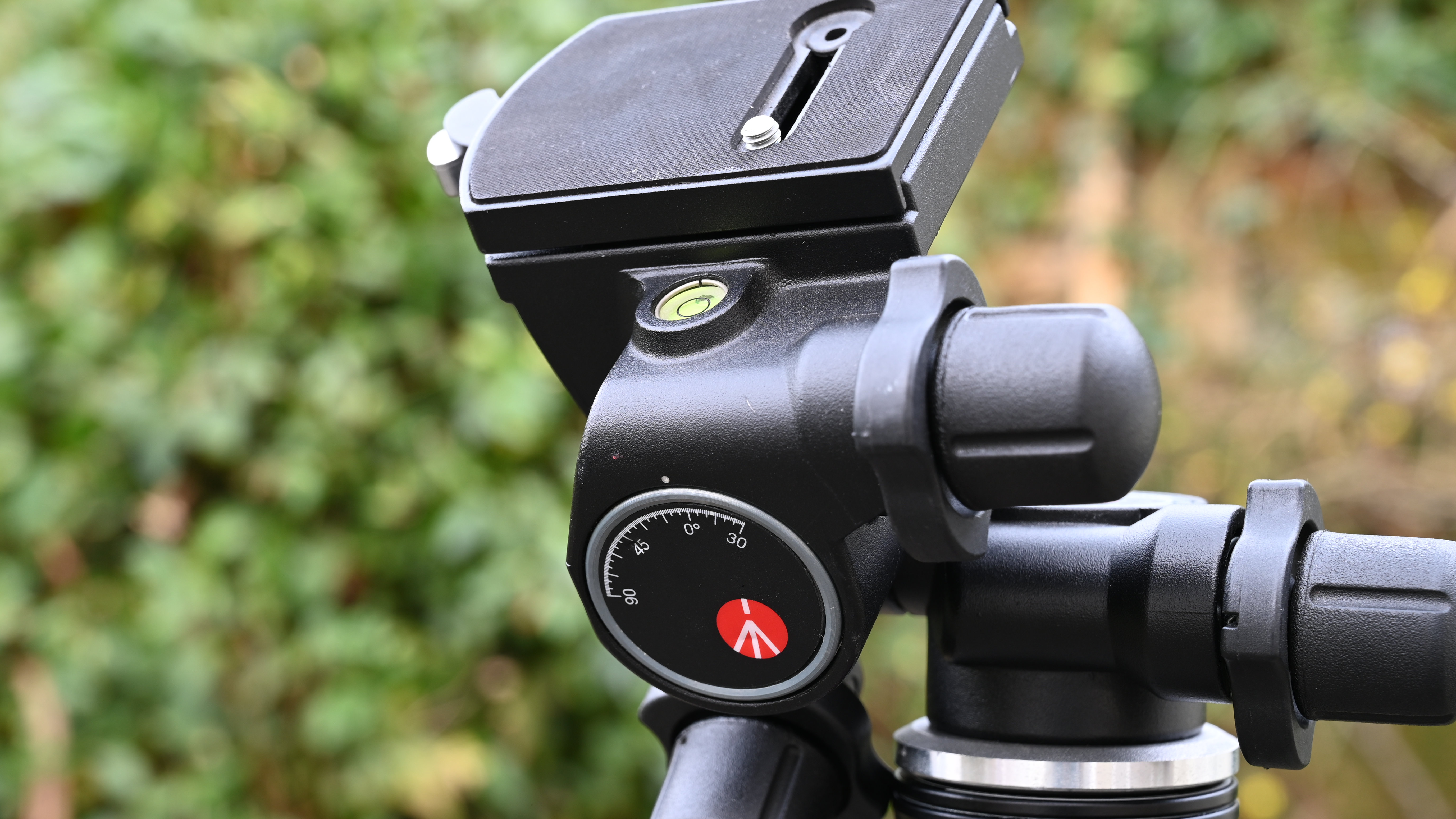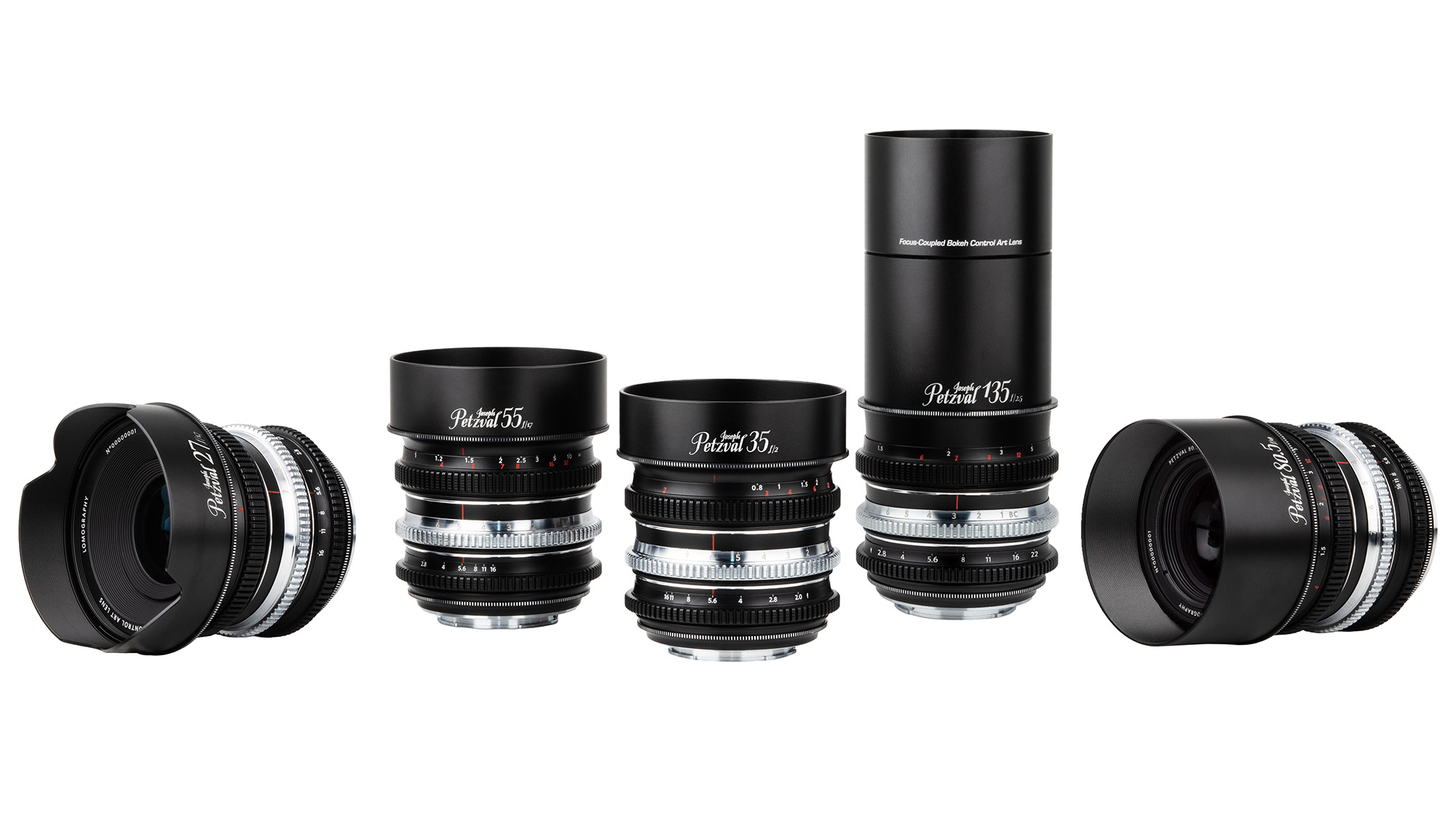Digital Camera World Verdict
From landscape and architectural photography to studio work, there are plenty of shooting scenarios that demand highly precise positional adjustments when your camera is mounted on a tripod. This 3-way geared head from Manfrotto is engineered with just that in mind. We like that it’s sturdily built and easy to use, while its micrometric control knobs enable very fine adjustments in all three planes. It’s a solid performer with a competitive purchase price.
Pros
- +
Solid aluminum construction
- +
Easy to use
- +
Good value for money
Cons
- -
Quite heavy
- -
Only one bubble level
- -
Non-standard quick-release plate
Why you can trust Digital Camera World
The Manfrotto 410 Junior geared head solves a problem. Many of us typically reach for a ball head when we’re shooting with a tripod, but they can be frustrating. When you need to make fine adjustments to keep everything on the level, or to shoot from a very specific angle, you can often find that a slight sag after tightening the locking knob can put everything on the skew. 3-way heads tend to offer a finer degree of control but can suffer from the same problem.
Geared heads work on a different principle. The weight of the camera and lens is fully supported even while you’re making adjustments, theoretically putting a stop to any unwanted sag or movement when you clamp a locking knob and let go of the camera. That’s the aim behind the design of the Manfrotto 410 Junior.
Specifications
Material: Aluminum
Maximum load: 5kg
Base diameter: 60mm
Plate type: 410PL
Degrees per turn: 7.2 degrees
Lateral tilt: -90 / +30 degrees
Front tilt: -30 / +90 degrees
Bubble/spirit levels: 1
Weight: 1.22kg / 2.7 lb
Key features
Typical of a 3-way geared head, the Manfrotto 410 Junior uses an independent worm drive for each of its three planes of movement. Each is therefore based on a gear in the form of a linear helical gear (or revolving threaded cylinder), which aligns with a toothed wheel. By twisting any of the three knobs attached to the respective cylinders, you can therefore apply fine, precise and independent adjustments to tilt, pan and swivel.
There’s a catch though, in that large changes to adjustment in any direction of travel can take many turns of the relevant knob, which is a time-wasting chore. To remedy the situation, the 410 Junior has a secondary clutch for each of its gears, which disengages the worm drive. By twisting the relevant clutch control, you can quickly and easily make wide-sweeping changes and then go back to the using the micrometric knobs for fine-tuning adjustments.
All three axes of movement come complete with a rotary scale, calibrated in degrees, for visual reference. Tilt and swivel movements stretch from -30 to +90 degrees, whereas panning operates through a full 360 degrees. For landscape orientation shooting, a single bubble level is featured as an adjustment aid. However, that won’t be any use if you’re shooting in portrait orientation, or need to shoot vertically downwards, for example when taking shots from above of an object placed on a table.
Build and handling
Unlike the more inexpensive Manfrotto XPRO geared head which is made from ‘Technopolymer’ (high-grade plastic), the 410 Junior engineered from aluminum. That makes it more rigid and robust, although it’s a sizeable chunk of metal and is getting on for twice the weight, tipping the scales at 1.22kg. It also has a slightly beefier maximum load rating of 5kg, compared with 4kg for the XPRO geared head. The base diameter of 60mm makes the head an ideal fit for Manfrotto’s heavier-duty tripods like the 055 series.
The best camera deals, reviews, product advice, and unmissable photography news, direct to your inbox!
Handling is very assured. The clutch system works as advertised, enabling quick and easy big adjustments. Meanwhile, the micrometric knobs require a full turn to give a 7.2-degree adjustment, which equates to very fine and precise control.
The 410 quick-release plate is reassuringly large and solid, helping to reduce any unwanted flexing of the mounted camera. However, it’s a non-standard item so if you use other tripod heads that have Manfrotto’s more common 200PL-14 quick-release plate, or an Arca-Swiss plate, you’ll need to chop and change between the plate fixed to your camera.
Performance
In our tests, we found performance to be very good. Using a chunky full-frame DSLR or mirrorless camera with a 24-70mm f/2.8 zoom lens, the head feels pretty solid and resistant to flexing. However, we still noticed a bit of flexing when using a more heavyweight combo like a camera with a 70-200mm f/2.8 lens, despite this being well within the maximum load capacity of the head. Either way, rigidity and resistance to flexing is very noticeably better than when using the more lightweight Manfrotto XPRO geared head.
Verdict
From landscape and architectural photography to studio work, there are plenty of shooting scenarios that demand highly precise positional adjustments when your camera is mounted on a tripod. This 3-way geared head from Manfrotto is engineered with just that in mind. We like that it’s sturdily built and easy to use, while its micrometric control knobs enable very fine adjustments in all three planes. It’s a solid performer with a competitive purchase price.
- The best ball heads for tripods
- The best pan and tilt tripod heads
- The best geared tripod heads
- The best panoramic tripod heads
- The best travel tripod
- The best tripod for photography
- The best gimbal heads for tripods
Matthew Richards is a photographer and journalist who has spent years using and reviewing all manner of photo gear. He is Digital Camera World's principal lens reviewer – and has tested more primes and zooms than most people have had hot dinners!
His expertise with equipment doesn’t end there, though. He is also an encyclopedia when it comes to all manner of cameras, camera holsters and bags, flashguns, tripods and heads, printers, papers and inks, and just about anything imaging-related.
In an earlier life he was a broadcast engineer at the BBC, as well as a former editor of PC Guide.
